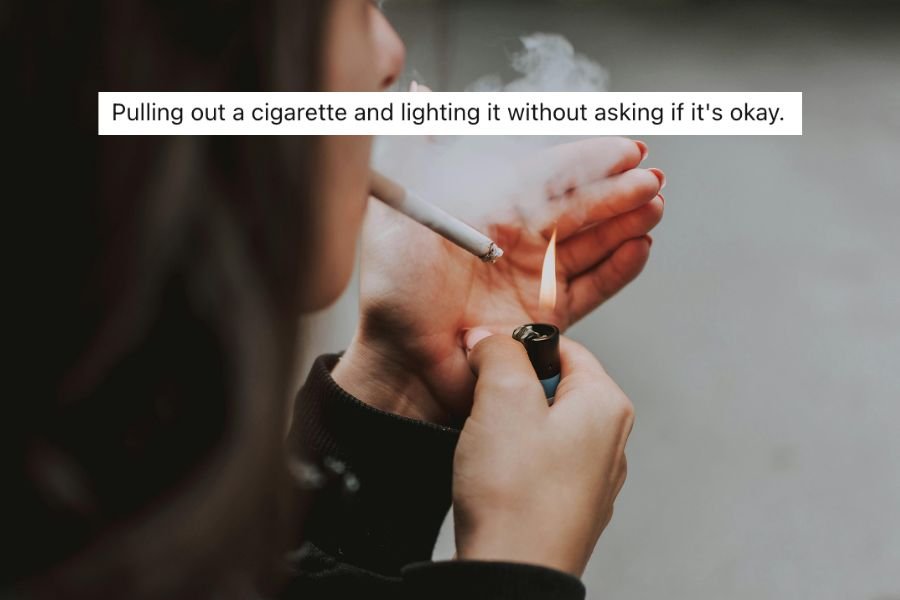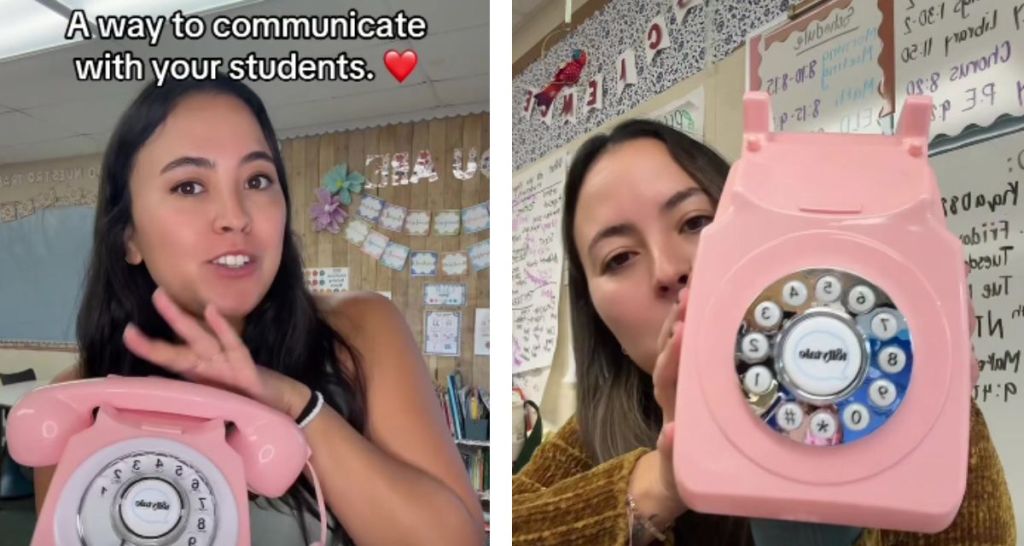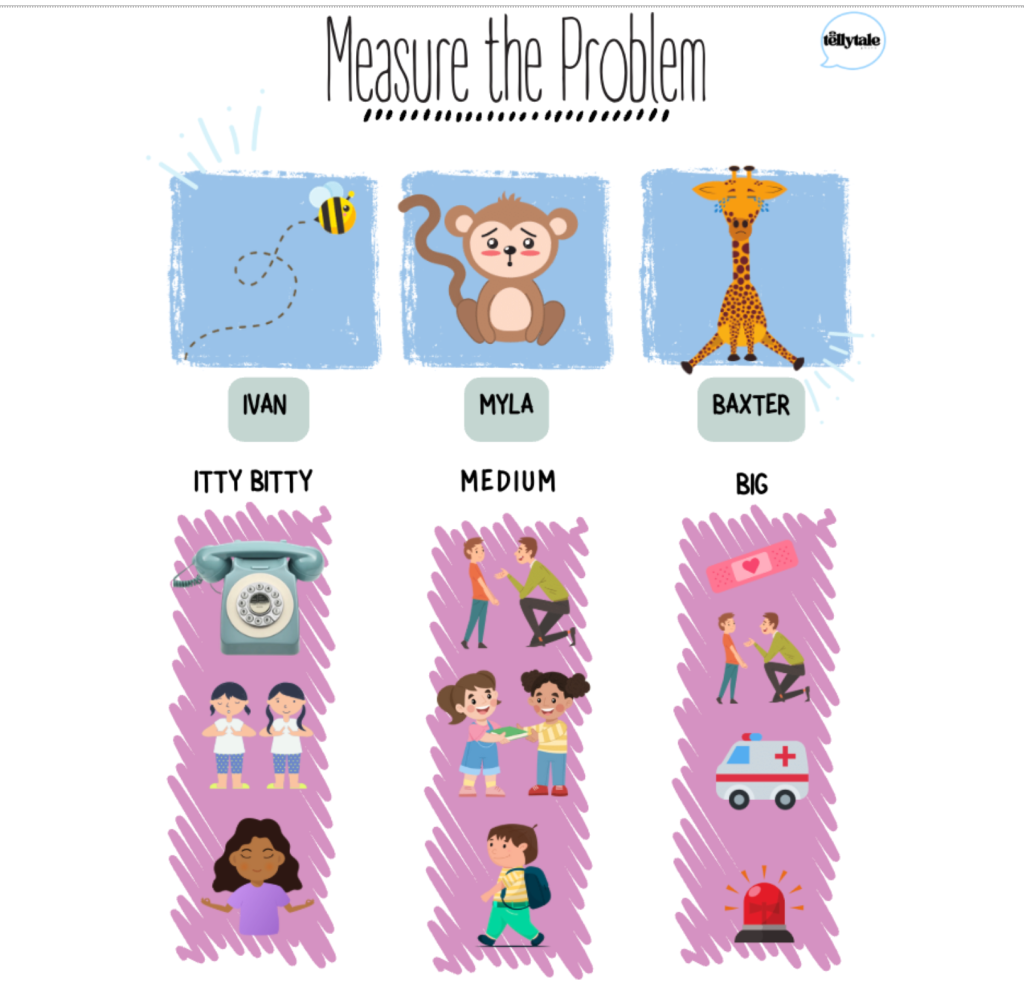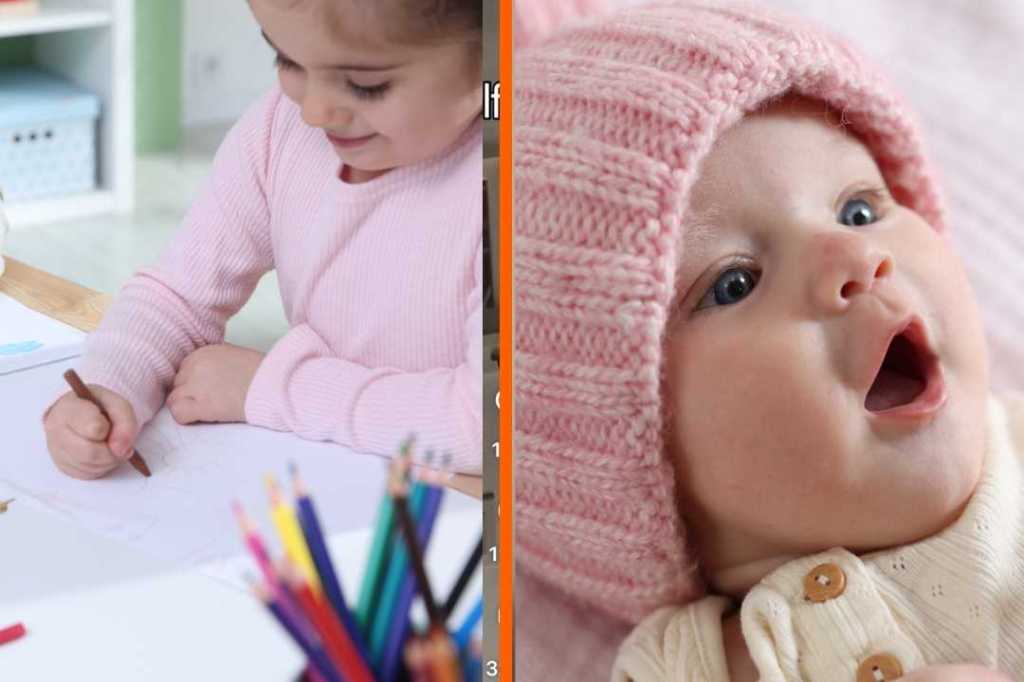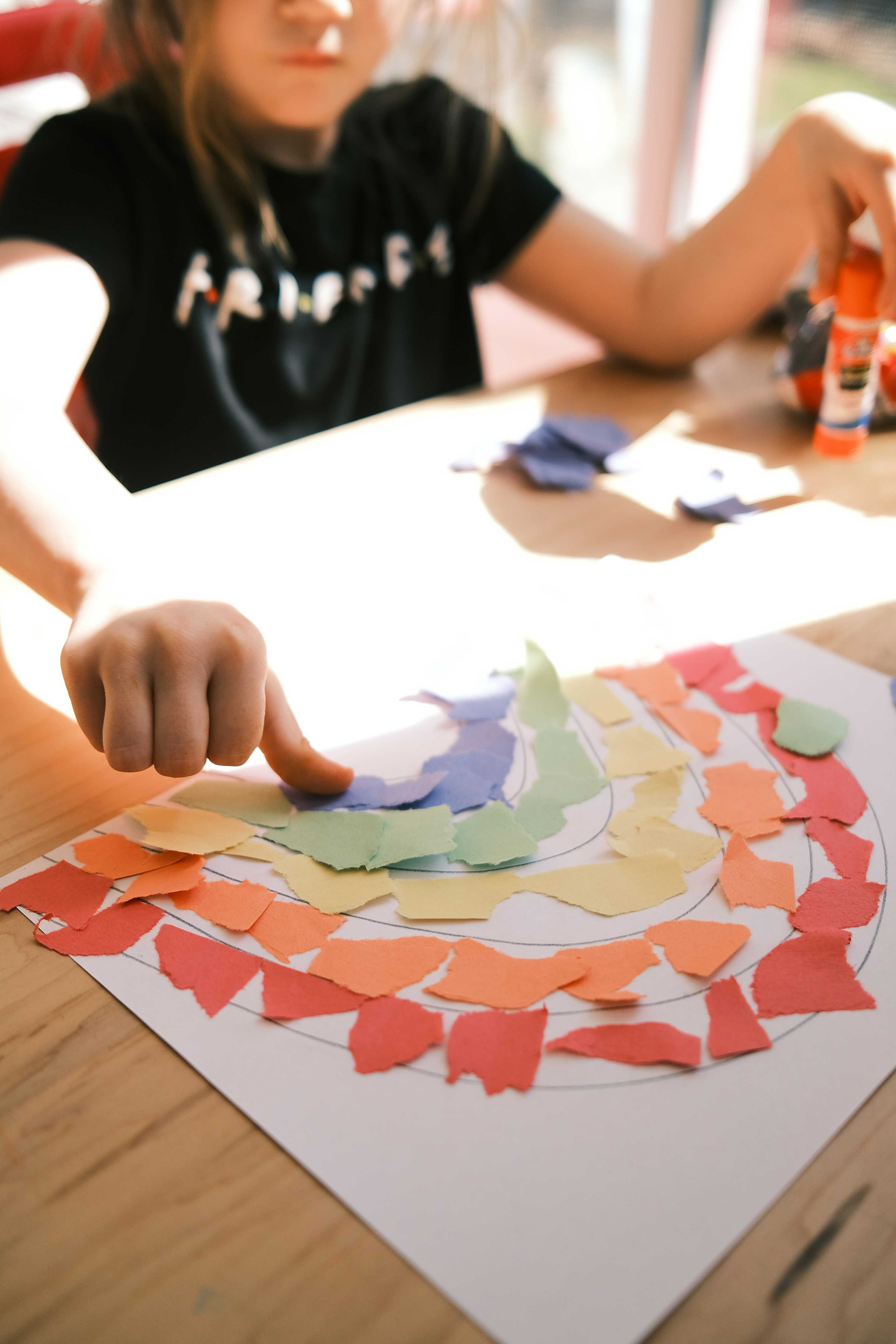How many times have you looked back to things you thought were “normal” from your childhood and thought “Huh, that was actually kinda weird in hindsight”? Times change, and what’s considered “normal and acceptable” change with them. That’s not automatically good or bad, necessarily, but hopefully humanity is evolving such that we learn from our mistakes and recognize room for improvement.
In that vein, someone asked Gen Xers and Boomers on Reddit, “What are some things that would be considered rude or boundary crossing today but were perfectly normal and acceptable when you were growing up?” and the answers reveal how much has shifted in the past handful of decades.
If you’re over 40, enjoy this slightly disturbing trip down memory lane. If you’re under 40, yes, all of these things really happened on a regular basis.
Scolding other people’s kids (even strangers)
Raising a child was seen as more of a community effort than it is today, which resulted in perfect strangers doling out discipline.
“Scolding someone else’s child. I remember getting corrected by strangers.”
“Those were the lessons that stuck the most too for me. When a family friend or stranger corrected me I knew without doubt I done f’d up. I didn’t like the trend during the late 80’s into 90’s of everyone telling each other to mind their own business and not correct a child that wasn’t theirs ~ horrible logic that I feel totally contributed to where we are at today with nobody considering other peoples opinions on things.”
“OMG yes! in my neighborhood, whoever’s house you were at, if you acted up, their mom was expected to let you know, and even send you home! it’s just how things were.”
“Kids were basically community property.”
Showing up or dropping by unannounced
Before cell phones, people didn’t always call or text before going to someone’s house. Company could just show up at any time. People had snacks on hand specifically for unexpected guests. It was a thing.
“Possibly stopping in at a friend’s house unannounced. That used to be fairly common when everyone didn’t have a phone in his or her pocket.”
“You never knew who, or how many, would show up at our house on a Friday night for a game of penny ante poker or Yahtzee in the 60’s and 70’s.”
“I do miss that. We always had extra snacks for guests available because we never knew when someone might just show up.”
“We always had a Pepperidge Farms Coconut cake in the freezer. My mother would take it out to thaw as soon as company showed up.”
“A corollary of this was that you were also expected to have your clothes on and be somewhat presentable while you were at home, since you never know who would be dropping by.”
“Hell, me and my friends would just walk into each other’s house like we lived there. None of the parents seemed to mind either. I often ended up eating meals at their homes and them at mine.”
Birthday spankings
Okay, yeah, this one is weird. It was a tradition to get a spanking for every year of your life on your birthday, and it wasn’t even just parents who did this. Teachers, your parents’ friends, etc.
“All my parents’ friends used to give me a spanking for each year on my birthday. Does anyone else remember this? Birthday spankings? So weird.”
“And a pinch to grow an inch.”
“My 4th grade teacher did this to all of us in front of the whole class. She ended it with a “pinch to grow on” and literally pinched our butts. This was around 2001 in Indianapolis. I don’t recall anyone ever having an issue with it at the time, but looking back it was definitely odd. She was a great teacher and I have nothing bad to say about her at all. It was just a different time.”
“Yessssss! I’m in MD and was in elementary school in the 80’s. If it was our birthday we would pick another kid to spank us in front of the whole grade, so if turning 9 you would get 9 smacks on your butt and all the kids would shout “ONE! TWO!…” I can’t imagine that happening now!”
“Oh god! In a school club we would all line up and the birthday girl to crawl between all our legs as we spanked her on birthdays. What a crazy tradition!”
“The spanking machine! Kids would line up in a row, legs open, and you would crawl through, while kids slapped your butt. Sometimes singing ‘today is spankin’ day!’”
Actual spankings. With a paddle. At school.
School principals, vice principals and sometimes teachers kept a paddle at their desk, which would be used to whack kids who misbehaved. Corporal punishment was the gold standard for behavior modification. Hacking, whacking, paddling—so any names for this woefully outdated practice.
“The big paddle that one of the teachers would possess that would be used on your hind quarters at their whim. No parent permission needed.”
“The (completely backward) school I attended in 7th grade in 1999-2000 still spanked kids. My math teacher spanked a kid in class at least once a week. This was the deep south and very different from other schools I went to, it was quite the culture shock.”
“I would get the paddle or else my desk kicked over while I was in it, my head would hit that floor HARD! I don’t know which was worse.”
“In 1987 my mom walked me into the school office and told everyone including the principle that under NO circumstances is anyone to paddle or spank me for discipline and if I misbehaved they were to simply call her about it. Their jaws dropped. That would not have happened anyways because I was a very well behaved and respectful child.”
“I definitely got the big paddle in the vice principal’s office.”
Smoking indoors everywhere
It’s impossible to explain to young people today how ubiquitous smoking used to be. Like, it was considered rude not to have ashtrays in your home. High schools had smoking areas. Restaurants, airplanes, waiting rooms—people smoked everywhere.
“I can recall the nurses at the triage in the hospital in my home town, smoking away while working. The 80s man, crazy time.”
“I was born in 82, there’s a picture of my mother holding me shortly after I was born, laying in a hospital bed, and on her bedside table is a pack of reds and an ashtray.”
“And on airplanes and trains. I remember riding the L in Chicago with people smoking on the cars.”
“Smoking in class at college.”
“Smoking in grocery stores and putting out butts on the floor.
Teachers with ash trays on their desks smoking during class.”
“My parents didn’t smoke, but they (1970s) kept a guest ashtray in the house in case a visitor wanted to light up. Complained endlessly about the smoke smell once the person was gone, but it would have been rude to tell them to take it outside or wait.”
Sexual harassment
Not that this was ever normal or acceptable, but it was tolerated to a disturbing level.
“Until Anita Hill, I had never even heard the term Sexual Harassment. I literally had no idea it was a thing. You were female, you were employed, men could make insistent advances with zero repercussions. One of my co-workers finally slept with the boss just to try to get him to leave her alone. This was NORMAL. We expected it to happen and accepted that it would, we just had to deal with it.”
“I was told to lighten up because it was a compliment.”
” I got my first job in 1973 when I was 15. I worked in the restaurant business and waited tables all through college. It was pervasive and customers (men) would say many unwanted things as well. My first adult job was selling pharmaceuticals in 1984 and the first thing my regional manager told me during orientation was if a doctor did or said anything inappropriate handle it anyway you saw fit and then call and tell me about. He made it clear we didn’t have to put up with any BS and were free to slap anyone if we needed to. By the nineties sexual harassment wasn’t gone but was getting called out in a big way. Until there was a name for sexual harassment we knew we were uncomfortable but didn’t really have a way to express it in a meaningful and united manner.”
“My friends and I were grabbed constantly in middle school by boys in early 90s. It never occurred to us to tell anyone and I honestly don’t think they would have cared. We just shared our shame amongst ourselves.”
“Men would randomly grab and touch women all the time when I was growing up. Boomers were the worst about it, but I’m GenX and even we had it somewhat normalized. We’d gotten a clue that it wasn’t great, but we hadn’t yet realized it was actually sexual assault when someone would fondle your butt or breasts unbidden. Or when someone would grab you and kiss you. If you complained you were told to lighten up.”
The drastic policing of what women wore under their clothes
Imagine having all the girls line up in gym class while the teacher runs his finger down each girl’s back to make sure she was wearing a bra. Imagine it being unheard of to not wear pantyhose and show bare skin on your legs while wearing a skirt. We still police what women and girls wear in some places, but it’s not as bad as it used to be.
“I’ve been told that women were expected to wear ‘foundation garments’ at work, and if they didn’t, then they might get reprimanded. I’m talking about longline bras and girdles.”
“In the 80s, one of my friends got sent to the office for not wearing a bra to high school.”
“Until 1999, I was required to wear pantyhose at work. Nuts! And they dictated ‘suntan’ color!”
“Not sure what I spent more $ on – pantyhose or clear nail polish to stop the runs.”
“I remember being a kid in the 90s my mom going from store to store looking for slips to put under my dresses, she had a whole section of her closet devoted to them. I hated them and didn’t understand their purpose. Still don’t. I’m so glad those are in the past.”
People shared other things as well, such as how common it was to touch total strangers or to cut through people’s yards to get to where you were going, and it’s a wild ride through shifting social norms. Some things are definitely best left in the past, but some lend themselves to a stronger sense of community and might be worth revisiting. It does make you wonder what things from today will show up on a list like this decades from now.
You can see more on the r/AskOldPeople thread here.
This article originally appeared last year.


